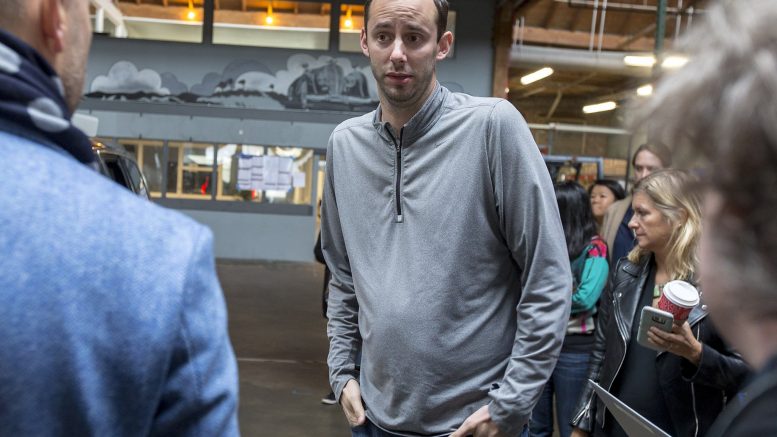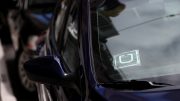Accused of stealing a key sensor for self-driving cars from rival Waymo, Uber argued Friday that it started developing its own lidar months before hiring one of Waymo’s former top engineers.
Waymo sued Uber in February, saying that the engineer — Anthony Levandowski — had taken Waymo’s proprietary design for lidar, a laser version of radar that autonomous vehicles use to scan their surroundings.
In a long-awaited court filing Friday, Uber said that it uses lidar made by other companies, including Velodyne of Morgan Hill. And while Uber is developing its own lidar, that project started before Levandowski’s arrival and boasts a different design, with four lenses instead of Waymo’s single lens, the company said.
“Waymo could not be more wrong, and Uber’s design could not be more different,” the filing reads.
Waymo, a division of Google’s parent company Alphabet, has accused Levandowski of downloading 14,000 documents just before leaving the company. Uber claimed Friday that a search of its computers had not found those documents.
A Waymo spokeswoman, however, said that Uber still has not searched Levandowski’s computers.
“Uber’s assertion that they’ve never touched the 14,000 stolen files is disingenuous at best, given their refusal to look in the most obvious place: the computers and devices owned by the head of their self-driving program,” the spokeswoman said in an email.
Levandowski has invoked his constitution right against self-incrimination to avoid providing documents in the case. Uber’s filing says the company “is blocked at this stage from providing an explanation” in response to the allegation that 14,000 files were stolen, because of Levandowski’s assertion of those constitutional rights.
During a court session this week, Uber lawyers said they had found one allegedly stolen file on a computer belonging to another employee who had previously worked at Google.
Waymo wants the federal district judge in the case, William Alsup, to issue an injunction barring Uber from using its proprietary lidar design. The suit, which pits two Bay Area tech giants against each other, has the potential to reshape the race to perfect and use self-driving cars. It also reflects the tangled family tree of the autonomous vehicle industry.
Levandowski had been one of the lead researchers in Google’s self-driving car program before leaving in January 2016 to form his own startup, Otto, which focused on self-driving trucks. Uber bought Otto for $680 million in August, merging the startup into its efforts to develop robot taxis. Many companies — including Ford Motor Co., Delphi and Tesla — are pursuing the same idea. Uber CEO Travis Kalanick has said that if someone else introduces driverless taxis first, then Uber would be “no longer a thing.”
In its filing Friday, Uber argued that an engineer it hired from Carnegie Mellon, Scott Boehmke, started developing Uber’s lidar design in 2015. The company also purchased startup Tyto Lidar, adding its researchers to the lidar development project, which Uber code-named Fuji.
While that project is still under way, Uber said in the filing that all of the self-driving cars it has tested so far have used lidar bought from other companies.
“To hinder Uber’s continued progress in its independent development of an in-house lidar that is fundamentally different than Waymo’s, when Uber has not used any of Waymo’s trade secrets, would impede Uber’s efforts to remain a viable business, stifle the talent and ingenuity that are the primary drivers of this emerging industry, and risk delaying the implementation of technology that could prevent car accidents,” the filing argues.
David R. Baker is a San Francisco Chronicle staff writer. Email: dbaker@sfchronicle.com Twitter: @DavidBakerSF
Source: www.sfgate.com




